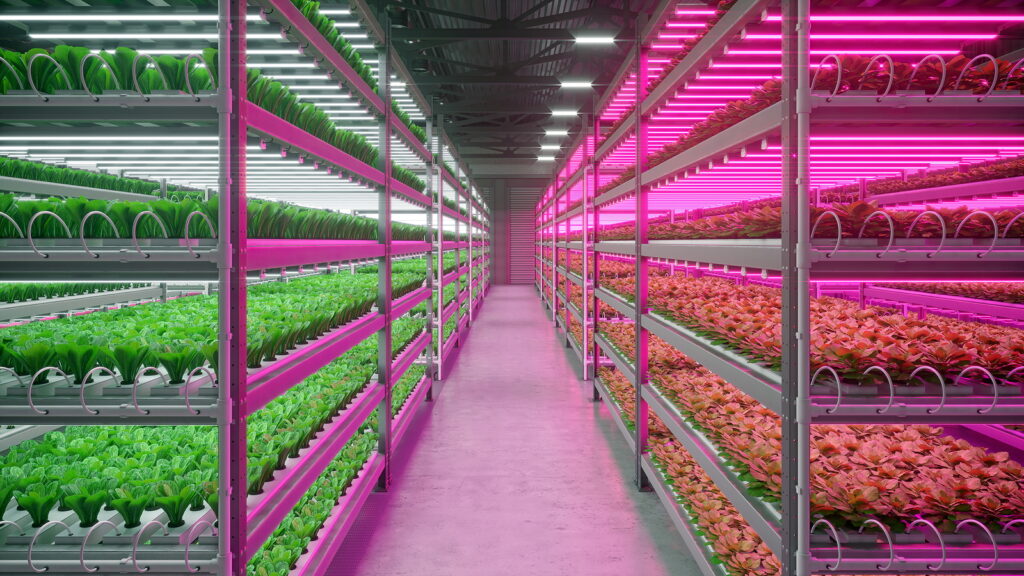If you’re looking at installing or managing a greenhouse of any size, you know that your greenhouse lighting system is going to be one of the most critical components. You need light that will be safe and healthy for your plants, while also providing all the light necessary for you to work. This can be a difficult balance to hit, and it’s good to have experienced Denver electricians on your side to help sort things out.

Let’s talk about some of the most important factors when choosing greenhouse lighting.
1. HPS vs LED lights
For a long time, high-pressure sodium-vapor (HPS) lights have been standard in greenhouses and other grow operations. However, recently Light-Emitting Diode (LED) technology has been making its way into greenhouse lighting. They both have their strengths.
HPS lights:
- Have a long track record of being safe for plants, with good spectrum lighting
- Are smaller than alternatives such as fluorescent lights
- Are cheap to buy and install, due to being so common
- Create heat, which may be beneficial in some cases
LED lights:
- Are highly energy-efficient, up to 75% less than alternatives
- Are long-lasting and require fewer bulb changes over time
- Allow for very precise tuning of light intensity and spectrum
- Can be placed much nearer to plants, reducing the need for high ceilings
2. Know Your Plants’ Needs
There’s no single all-purpose greenhouse lighting system. Whatever you choose, it needs to fit the needs of your plants. The most important factors here are:
- Spectrum range. Plants require radiation in the 400 to 700nm range, which is the range that triggers their photosynthesis. This is also called Photosynthetically Active Radiation, or PAR.
- Light level requirements. You should know how much ambient light exists in your greenhouse, without lights. This allows you to pick lights of the right intensity to match what the plants need.
- Shadowing issues. A light fixture will always create its own shadow, and networks of lights can create complicated shadows. The layout must be carefully crafted so that every plant gets the light it needs, without too much shadow.
- Heat requirements. Some greenhouse lights create more heat than others, which must be considered carefully regarding how much heat your plants will tolerate.
3. Know Your Electrical Needs
Finally, always keep in mind that you’ll need to supply enough power to run all your lights. You should pay close attention to the energy demands of the lighting system you choose, as well as its overall efficiency. Then be certain you have a power supply that can handle it. A great Denver electrician can handle any upgrades you need.
Hometown Electrical Services are your all-purpose Denver electricians! We have extensive experience installing and maintaining greenhouse lighting systems and are always happy to help you create a thriving greenhouse.
Whether you’re installing a new greenhouse or working on an existing grow operation, contact us to discuss your needs!
